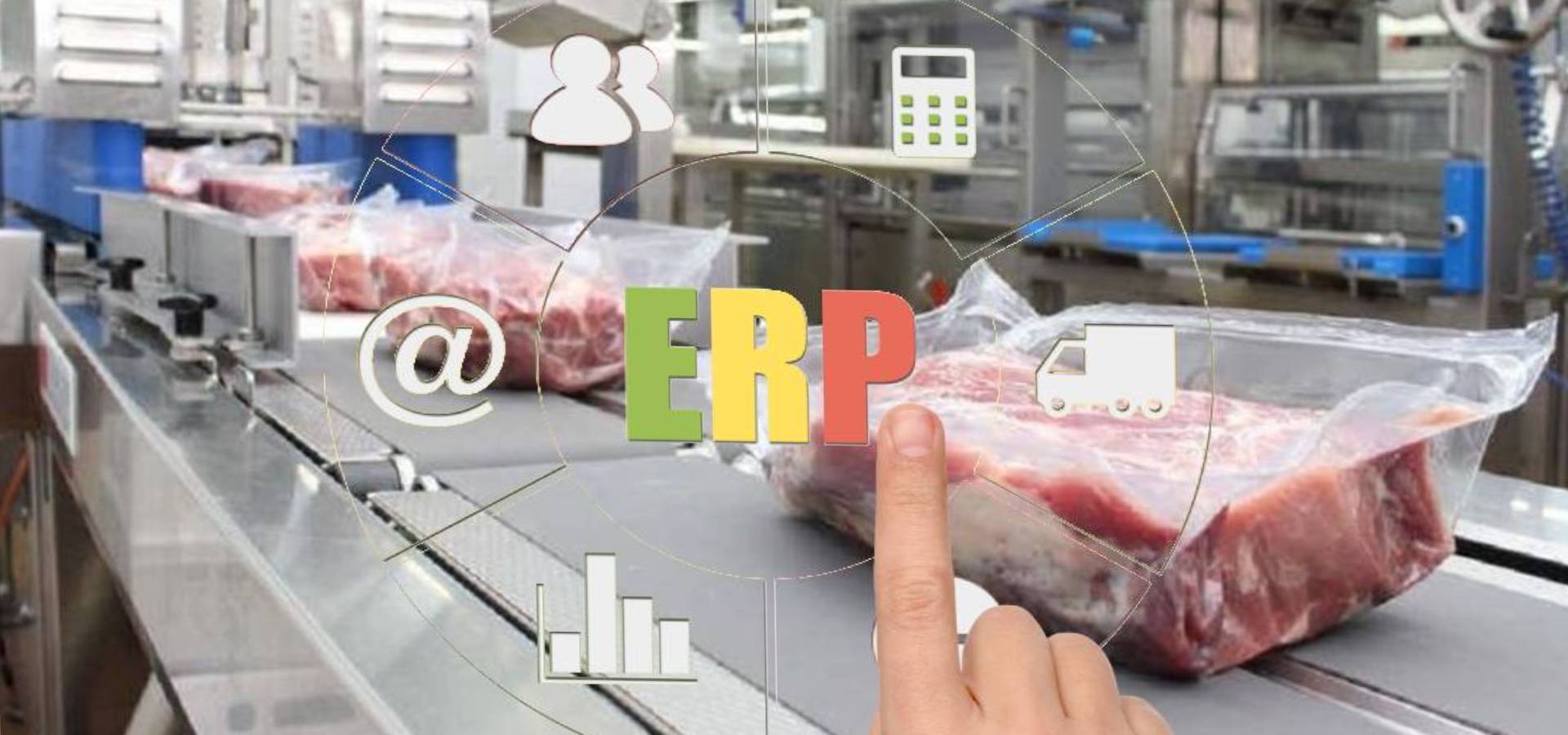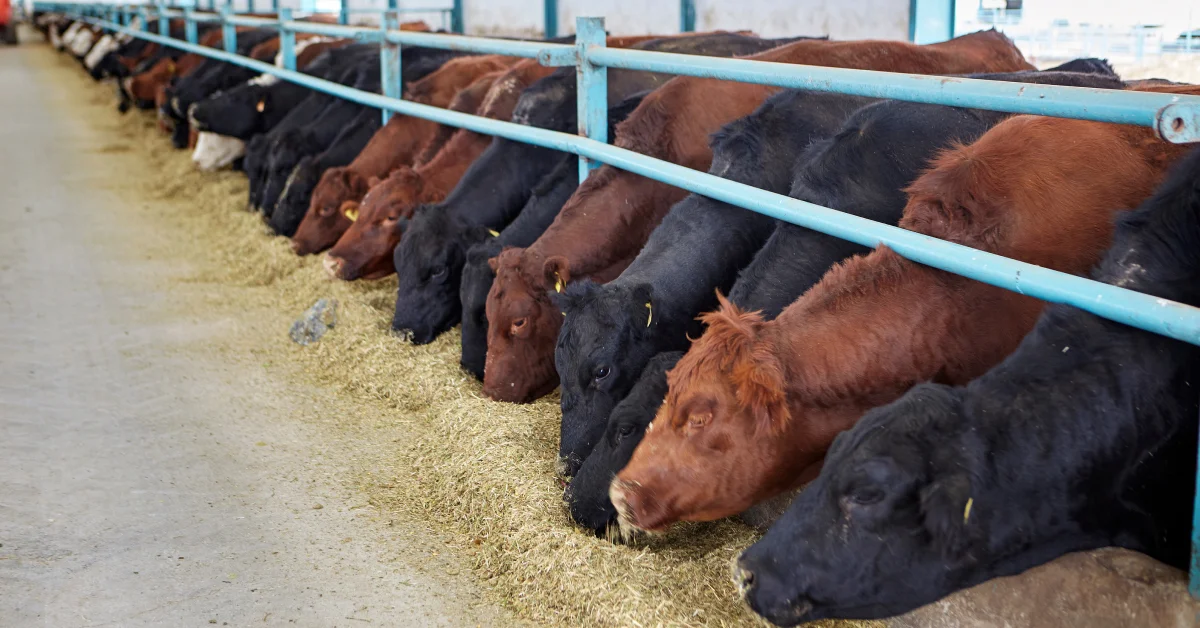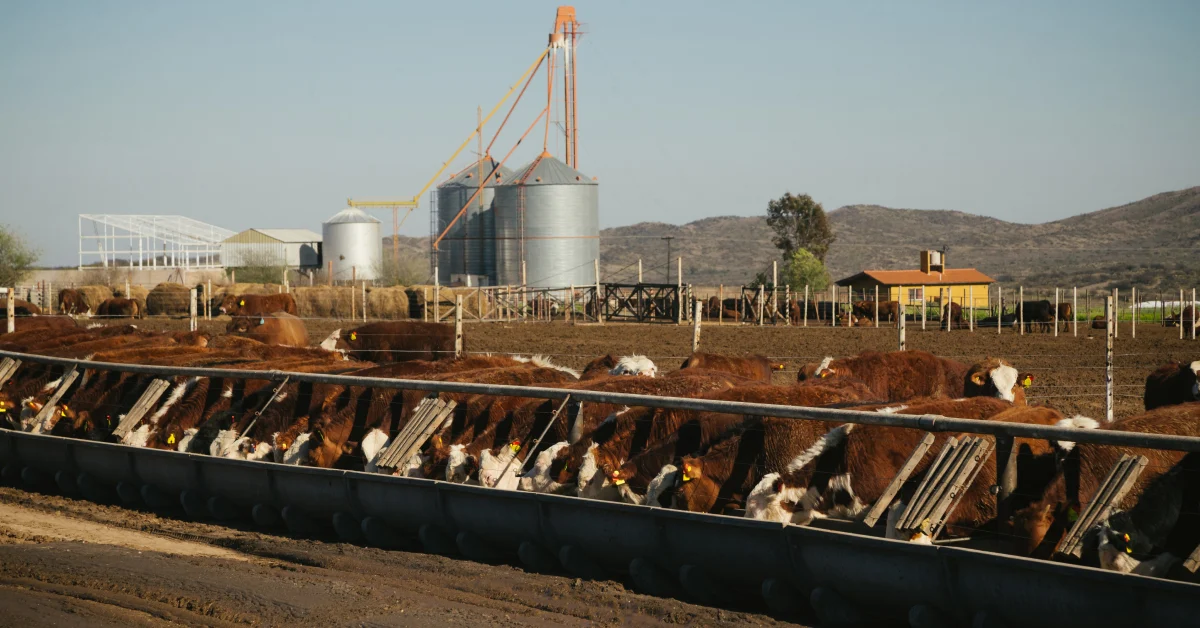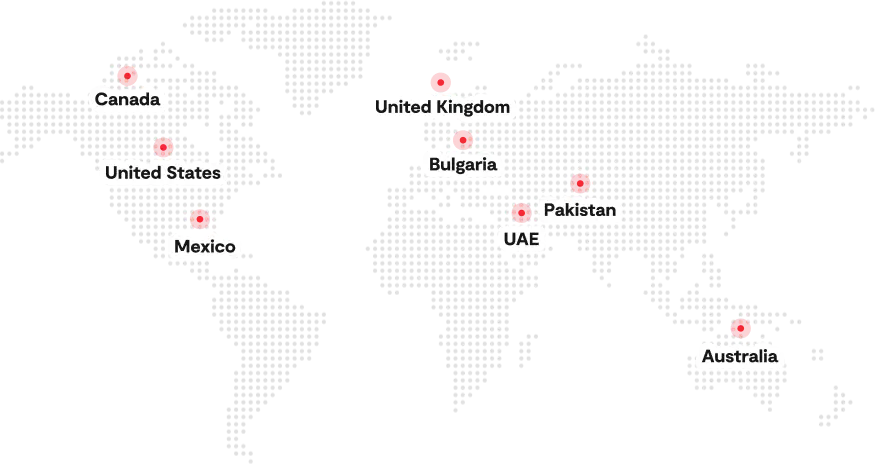As COVID-19 still wreaks havoc on the meat and poultry industries, processors are grappling with a slew of difficulties in order to keep their workers safe and meet production goals. While these obstacles may appear challenging at first, there are a variety of solutions available to help you overcome them.
Review some issues you may be encountering and the top solutions meant to assist you in responding to them as you strive to tackle the challenges facing the meat and poultry sector.
What are the Challenges for the Meat & Poultry Manufacturing Industry?
Today’s meat and poultry businesses face a slew of risks and roadblocks that can wreak havoc on productivity, profitability, and the capacity to meet customer needs. Worker illnesses, market fluctuations, compliance rules, and supply chain disruptions are among the concerns.
The following are the Top 5 issues that the Meat and Poultry Sector is Facing:
1- Regulations and Compliance
Many businesses understand the need to be up-to-date on the newest compliance and regulations in the meat and poultry industry. Aside from the immediate requirement for pandemic containment at your business, there is a long-standing drive for processors to sanitize, clean, and adhere to a sound HACCP program.
Processors risk spreading foodborne infections and illnesses if they do not review FSIS rules and train their employees to follow them.
With the world currently in the grip of a global epidemic, it’s more important than ever for processors to adhere to new laws, particularly those relating to COVID-19.
2- Sickness and Absenteeism in The Workplace
Workers’ illness and absence are currently a big issue in the meat and poultry business. For example, in April and May 2020, over 9% of employees in cattle, pig, and poultry plants tested positive for COVID-19, according to a report from the Centers for Disease Control and Prevention (CDC) in 14 states.
Even before the epidemic, a scarcity of qualified labor was a major issue in the sector. More than 16,000 confirmed COVID-19 cases have compounded the shortages.
3- Disruptions in the Supply Chain
An overstock of animals has resulted from temporary plant closures and slowdowns to allow social separation and preventive measures. Furthermore, processors with significant absenteeism have found it difficult to meet their output targets.
Due to reduced plant capacity. Despite supply chain interruption, processors must adapt to the challenge of returning production back to peak efficiency.
4- Shifts in The Market
The shift in market demand has posed substantial hurdles for meat producers, who have had to quickly adapt production lines, packaging, and resources to match the increased retail demand.
Furthermore, food service products that have already been created but are no longer required are taking up valuable space in cold storage freezers. These grocery-store shopping habits are likely to persist for the foreseeable future, putting pressure on meat and poultry processors.
5- High Demands for Beef and Chicken
The United States’ beef and pork production remained high in 2020. In September, for example, beef processing increased by 8%, and pork processing increased by 4% over the previous year.
Because feedlots are likely to have a backlog of animals owing to earlier-in-the-year slowdowns, it’s critical that they can maintain higher output levels in the future.
How Does ERP Help the Meat Industry?
Enterprise Resource Planning (ERP) is a type of business continuity software that allows companies to automate and streamline their entire operational and administrative procedures.
ERP enables firms to meet their regulatory compliance obligations by establishing seamless workflow processes and guaranteeing transparency across all corporate operations.
The following are some of the potential advantages of ERP software for the meat processing industry:
Track – and – Trace:
By incorporating a sophisticated ERP system into workflows, businesses can increase transparency across all company areas. This system also enables businesses to improve traceability across the supply chain process, assuring customers of the product’s quality and safety by providing transparency into the origin of the meat.
Quality Assurance (QA) and Safety Requirements:
The creation of specific ERP software for the meat industry has resulted from the growing need for powerful ERP systems to manage quality control procedures in this sector.
These platforms provide firms with tailored solutions for putting in place tight measures to assure product quality while also adhering to regulations. Businesses can ensure the following with the correct ERP system in place:
- Meat processing procedures are monitored automatically.
- Storage condition management that is automated (temperature, refrigeration)
- Establishing superior hygiene and packaging techniques
- Documentation for storing in detail
Avoid Spoilage:
Using an ERP system, companies may track the date and state of meat production. This data is essential for automating the supply and movement of meat products, as well as keeping track of fresh, frozen, or rotten meat.
Keep Track of Batch Information:
Meat-specific ERP software allows businesses to keep track of batch numbers for manufactured items. For quality and safety assurance, this allows them to track entire batches of items rather than individual products.
The meat business can track the uniformity of entire batches and prevent any spoiled batches from reaching the market by tracking batch information.
Respond to Recalls:
As a result of ERP systems’ ability to keep track of all important information about product batches, it’s easier for manufacturers to respond to any adverse incident that necessitates a recall.
Because all pertinent information, including batch dates and supplier locations, is readily available in the ERP system, it is simple to recall any batch as needed.
Adhere to USDA and other Food Rules:
As previously said, the meat business is one of the most heavily regulated in the United States, with a plethora of complex regulations governing product quality and safety.
It is easier for producers to comply with many rules and avoid fines with comprehensive and specialized ERP software for the meat sector.
Move Received Products Automatically:
ERP software for the meat sector can help organizations automate product inventory, saving time and effort.
Ensure that the Product is Delivered on Time:
While time is important in many businesses, it is especially important for meat processors since any delays in operations, packing, or supply chain could result in product deterioration.
Meat processors may maintain track of the exact date of manufacturing for any batch and convey it to customers using an ERP system integrated into operational procedures.
Businesses can also increase operational efficiency by automating the numerous workflow processes involved in the manufacturing and processing of meat, resulting in the timely delivery of fresh products to the market.
Manage Promotional Offers:
Some of the most advanced and customized meat ERP software has a feature that allows firms to establish and manage promotional offers. Customers who meet certain criteria may be eligible for discounts or special offers.
To preserve correct account books, the ERP system may integrate all of these promos and discount offers with the main accounting system of the organization.
Business Overview in Real-Time:
Business meat processors can access real-time updates for the execution of many business tasks thanks to powerful ERP software integrated into the system and procedures.
This ensures that business leaders are informed of the status of various operations and are able to make prompt choices as necessary.
Streamline Company Processes:
The ERP system makes data administration easier and more convenient for meat processors by seamlessly connecting multiple business tasks.
This reduces the number of errors connected with human data entering while simultaneously enhancing the process’ efficiency.
Reduce the Number of Software Programs and/or Combine Them:
An ERP system operates as a single unified system for collecting, processing, and analyzing data from various company functions.
This means that by integrating a specific meat ERP system, meat processors can eliminate the need for many pieces of software to handle different business tasks such as accounting, inventory management, supply chain, and so on.
This also leads to more streamlined operations and processes, which leads to increased corporate efficiency and production.
Benefits of AgTech Folio3 ERP in the Meat and Poultry Industry
Enterprise Resource Planning (ERP) is a business continuity platform that allows firms to create a centrally integrated platform to streamline workflow processes and systems.
It’s frequently utilized by enterprises across industries to increase productivity, minimize expenses, and eliminate errors. Healthcare, logistics, nonprofit organizations, the meat processing sector, hospitality, and construction are just a few of the industries that have benefited from ERP systems.
For over 15 years, Folio3 has been offering custom developed agricultural software solutions to organizations all around the world. We work with Fortune 500 companies, industries, as well as small and medium businesses and startups.
We offer services in a variety of areas, including e-commerce, Agtech, application development, artificial intelligence, and machine learning solutions.
Folio3 may assist in addressing biosecurity management issues by delivering ERP software that ensures complete transparency and safety of poultry flocks.
Management of Tasks
Managing different jobs for multiple batches of chicken is complex. As a result, workers occasionally fail to complete assignments on time, and communication breakdowns result in operational inefficiencies.
There are inefficiencies in firms that employ paper-based checklists and forms for their operations. This causes outbreak detection to be delayed, resulting in a very distressing series of events. A real-time solution is required to respond quickly in the event of an outbreak. Folio3’s Agtech solutions can help you accomplish this.
Our system can automate task management and digitize workflows and forms to ensure that they are available according to user roles and are always accessible from mobile devices.
Management of Procedures
It takes a long time to update and implement changes into the farm’s manual operations. There is a delay in implementation when paper-based forms are used throughout the business and in numerous locations.
This increases the odds of human error while also lowering the chances of following the correct SOP.
Agtech solutions can aid in the rapid deployment of biosecurity with the least amount of time and effort. The program can be used to rapidly update digital forms, real-time workflow updates, quality and compliance, and discover protocols that should be improved.
Regulators’ Quality Standards Must Be Met
There is a timing lag in typical farms. This time lag refers to the time it takes to detect a variation in food quality. Regulatory agencies such as the FDA and USDA must ensure that your farm adheres to the law and is in compliance with the rules in place to safeguard the public.
Folio3’s digital solution can help to speed up the entire compliance and quality control process by delivering digitized forms that automate issue reporting and use benchmarks to reduce recalls.
Assistance with Audits and Certifications
Auditing a farm is a time-consuming, labor-intensive, and resource-intensive procedure since auditors must sift through mountains of papers to find information and then collect it for audit.
Documents are occasionally lost or damaged, which causes problems since auditors refuse to approve certificates due to a lack of evidence. Companies are looking for alternatives to ensure thorough auditing as paper-based processes become a waste of space.
Digitizing records, automating data gathering, and tracking animal health in accordance with industry standards are some different use cases.
Ensure the Safety of Food and the Welfare of Animals
The farms’ present manual operations hinder farm managers from having total visibility into the process. This includes the food safety compliance process, without which taking corrective action before it’s too late becomes difficult.
Animal health is tracked on farms using paper checklists. However, in order to usher in a new era of food safety through biosecurity, the process must be digitized.
Our Agtech system can manage and track your animal’s health. The solution may construct digital dashboards for usability, make the safety checklist consistent with standards, and digitize workflows so that management can check for adherence to safety standards and guarantee that all employees are well-informed about food safety requirements.
Make Food Recalls Unobtrusive
Finding correct data in a timely manner in the event of a disease epidemic or any other situation is a major challenge. Manual processes cannot help with data traceability or reduce recalls.
Technology can assist in taking immediate corrective action. The various applications generate digitized reports that improve traceability and may promptly identify damaged lots, allowing for discreet and fast recalls.
Utilizing Automation to Reduce Workload
The automation must be utilized to analyze the farm’s performance and ensure that any disease dangers are identified well ahead of time. Analysis is limited due to paper-based methods, and biosecurity activities are hampered because there is no identification to improve performance.
Folio3 Agtech solutions revolutionize poultry farm biosecurity while simultaneously providing the benefits of an ERP system. Folio3 may tailor your solutions to your specific requirements, ensuring that your company’s standards are met as well.
Final Words
Software solutions can assist you in achieving your goals and needs. It’s critical to have a strategy in place to ensure that your poultry is safe to eat. To have the greatest and safest poultry farm, it is recommended that digitized software solutions be used.
Folio3 could be the perfect agricultural ERP system for you. With over a decade of experience, our AgTech geniuses have helped agricultural companies with their technicalities. Book your consultation!
FAQs
What is ERP, and how does it work?
ERP stands for Enterprise Resource Planning, and it’s a fully-featured business management system that lets you manage every area of your firm. Accounting, finance, inventory management, order input and processing, purchasing, warehouse management, customer relationship management, eCommerce, and other features are included.
What is modern poultry farming?
Poultry farming is the practice of raising domesticated birds such as chickens, ducks, turkeys, and geese for the purpose of producing meat or eggs for human use. Poultry, primarily chickens, are raised in large quantities.






